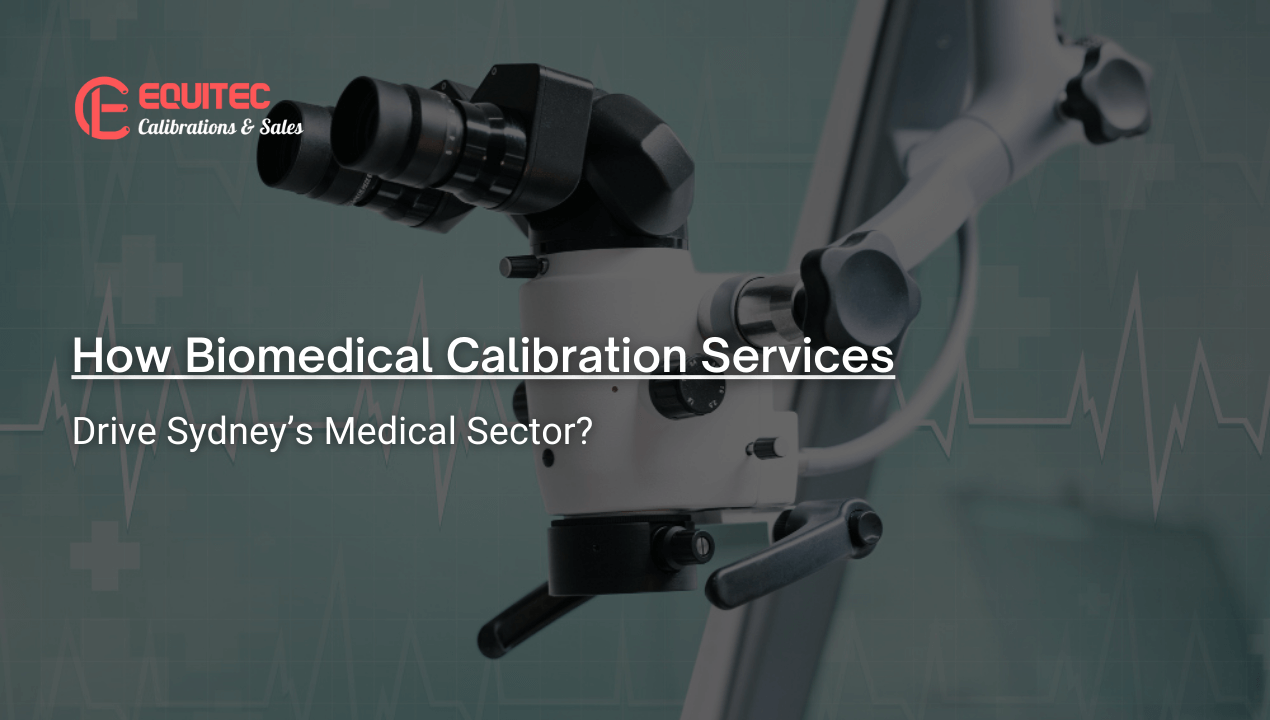Biomedical Calibration Services are essential in the medical field. It is a process that involves adjusting and verifying medical equipment accuracy. This equipment is used for diagnosing, treating, or closely observing patients.
In Australia, accurate equipment measurement is crucial for patient safety. Also, the quality of healthcare services depends on the tools. In this blog, we’ll discuss the benefits of using biomedical instrument calibration services:
Top Benefits of Using Biomedical Calibration Services in Sydney

1. Provides Reliable Diagnostic Results:
Proper tests are useful to help physicians diagnose the patient correctly. Biomedical instruments like sphygmomanometers, ECGs, and lab equipment must be accurate in measurements.
Only when these instruments are calibrated can healthcare providers rely on the outcome. They can eventually give patients the correct diagnosis or treatment plan.
2. Improves Patient Safety:
Patient safety is highly sensitive in healthcare facilities throughout Sydney. Biomedical measurements that are inaccurate have severe consequences in the medical field. It can lead to an incorrect diagnosis or treatment. The calibration of all instruments reduces the incidence of such events.
Operational tests confirm that the devices are working at optimal levels. It also ensures the accuracy of the measurements and enhances patient safety. How? Through different medical procedures.
3. Maintaining Compliance with Standards and Regulations
The delivery of health services in Sydney is required to meet set regulations. The whole country is strict on regulatory standards for healthcare facilities.
Biomedical instrument calibration is a necessity to meet these standards. It is proof that a given medical device has accurate values and has been calibrated as per the standards.
So, adherence to these regulations protects the patients. It also assists healthcare facilities in upholding the image, reducing legal consequences.
4. Increases Instrument Lifespan
Accuracy is a crucial thing. But, the process of familiarisation also contributes to extending biomedical instruments’ lifespans. There could be problems during calibration. But everything should be fixed before using the equipment. It can help to avoid issues from arising and increase the lifespan of the instruments.
Finally, this saves costs because there will be few replacements. Yet, it makes the measurement accurate in instruments for a long time.
5. Optimises Operational Efficiency
Biomedical calibration guarantees accuracy and makes health facilities work efficiently. Calibration also helps the medical staff find any equipment that might be faulty.
This ensures that diagnostic devices are available to be used as and when required. It minimises patient wait time and enhances the fluidity of the healthcare structures.
6. Supports technological advancements
It is one of the top reasons for keeping your healthcare equipment up-to-date. Calibration of new devices such as MRI, and radiology. And more ensures optimal performance within the intended range.
This aids care providers in adopting new technologies in their practices. Also, seeing to it that other equipment in practice gets updated in the best way possible. Its ultimate goal is to ensure patients get the best out of these technologies.
7. Support quality assurance programs
Biomedical instrument calibration is crucial for quality assurance efforts undertaken by healthcare organizations. It guarantees that the items being measured by medical devices are correct.
Healthcare firms that implement calibration can assess, ensure, and sustain equipment accuracy. It will also help to recognise performance changes and move to correct the issues early. This approach also raises the general quality of the services. And cultivates a process of perpetual improvement.
Conclusion
Biomedical instrument calibration is a process that cannot be omitted. It ensures accurate measurements in the medical field. Constant and proper calibration of medical equipment is crucial in Sydney. It helps the facilities enhance their delivery of healthcare services.

